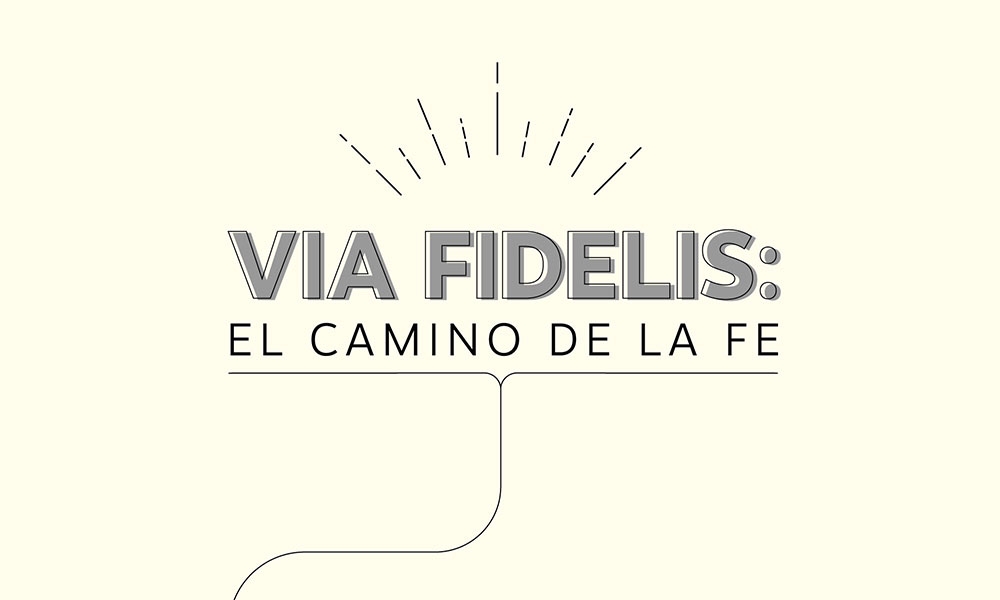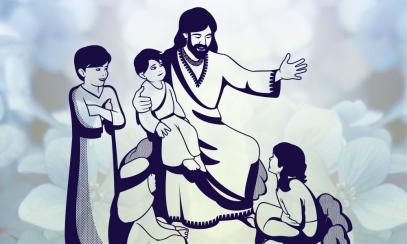
Via Fidelis: A new diocesan journey of faith
Lea en español aquí: https://themiscellany.org/fidelis-un-nuevo-camino-diocesano-de-fe
Lea en español aquí: https://themiscellany.org/fidelis-un-nuevo-camino-diocesano-de-fe
As we pivot into a new phase in the Eucharistic Revival, we are going to pivot to a new phase in this space. We have been focusing on the Eucharist in various ways over the last three years, and it has been and continues to be a wonderful, life-changing journey.
As we pivot into a new phase in the Eucharistic Revival, we are going to pivot to a new phase in this space. We have been focusing on the Eucharist in various ways over the last three years, and it has been and continues to be a wonderful, life-changing journey.
Following the lead of our shepherd, Bishop Jacques Fabre-Jeune, CS, we will embark together on what will also be a life-changing journey, complementary to the one we are on as the Church in the United States. At our diocesan Eucharistic Congress in April, Bishop Fabre introduced a vision for the trajectory of our diocese over the next five years. He is calling it Via Fidelis, which is Latin for “the faithful way.”
There is a lot of significance even in the very title of this vision. First, faith is front and center. But, when we talk about faith, we can mean a lot of different things. Two of the most important of these are captured by a couple of other Latin phrases: fides quae creditur and fides qua creditur.
Fides quae creditur is the faith that is believed. It’s the content of the faith — that we often call the “deposit of faith” — comprising Scripture and Tradition, both rooted in the Word who became incarnate. Faith in this sense is what we believe. It is our mission as disciples of Christ to internalize and share this treasury of faith.
Fides qua creditur is the faith as belief and how we believe. This refers to the act of faith — our fundamental trust and commitment to God. We are also commissioned to share this faith, and it’s why we talk about the importance of Christian witness.
These two meanings of the word faith go hand in hand. The content and the act of belief must go together. The “what” of our belief is also the “why” of our belief. As we begin to journey on this “faithful way,” we are going to appeal to and explore our faith in both of these senses.
This brings us to the other part of this title, via, or way. The Latin word was used in the Roman Empire to denote a road and some of these Roman viae exist today. But, it is not just a nice Latin word for road. The word for way — ὁδὸς or hodos — is what our earliest Christian family called Christianity itself.
It is no coincidence that Christ refers to himself as “the way and the truth and the life” (Jn 14:6), because Christianity is not only a truth to be known, but a life to be lived and a journey to be undertaken. This journey is always in, with and toward Christ himself. The journey, then, is a relationship.
Practically speaking, what are the navigational coordinates that our shepherd, the bishop, has laid out for us on this journey of faith? They are simple themes but ones that are profound. Since each takes a lifetime to explore, our common celebration of them is the launching point for lifelong journeys.
2025 - Evangelization
In 2025, we will be reminded of our call to Proclaim the Faith. We will work together to not only remember what it is that we proclaim, but to also actively and joyfully proclaim that faith.
2026 - Catechesis
In 2026, we will seek to Understand the Faith more deeply. This will be a year where catechesis for people of all ages will get special emphasis in our activities. We will move through the initial proclamation of the Gospel to explore other areas of our faith that flow from this Good News.
2027 - Sacraments
In 2027, we will give emphasis to how we Celebrate the Faith. Sacraments and sacred liturgy will get special focus, not only in terms of reinvigoration, but also in active invitation. The bishop also plans to hold the next Diocesan Eucharistic Congress this year.
2028 - Service
In 2028, we will Serve the Faith. Faithful service that exhibits the love of Christ to our neighbor will be highlighted and opportunities to serve will be facilitated.
2029 - Mission
In 2029, we will round out our process with the annual spotlight on mission as we Share the Faith. We will be reminded that we are sent out by our Lord with work to do in the world around us, which is ultimately to call others to Christ.
These themes do overlap, mainly because they highlight various aspects of our lives as Christians, so it’s important to remember that the annual themes are not mutually exclusive. After all, we are always called to mission, service, etc. These yearly focuses will be reminders to us of the importance of each aspect of our life in Christ. Be assured that as we begin this new journey together, we are not turning our eyes away from the Eucharist or our eucharistic journey. The integrity, the completeness of our faith and all our themes come together in Christ Jesus.
We are going to continue to proclaim the Good News — as we enter the first year of our multi-year journey — of which the Eucharist gives us a glimpse and a tangible experience. Through all our journeying, the Eucharist will be our viaticum, our food and nourishment along the way. Let us remember that we are a pilgrim Church and that Christ himself is the path that we are traveling. Join us on the Via Fidelis!
Michael Martocchio, Ph.D., is the secretary of discipleship and the director of the Office of Catechesis and Christian Initiation. Email him at mmartocchio@charlestondiocese.org.



